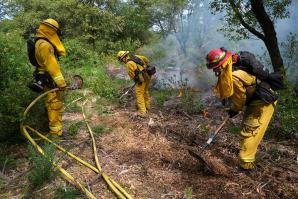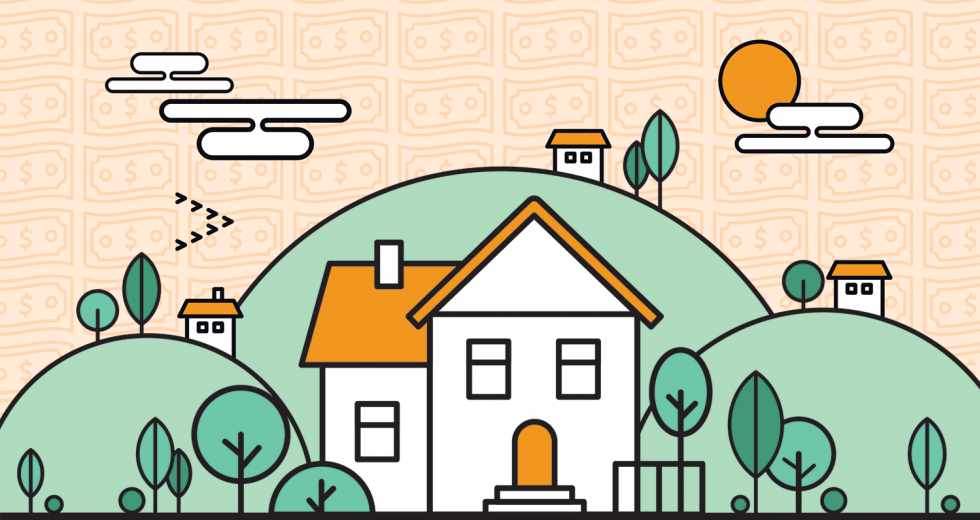The most striking effect from the Camp Fire is rising fire insurance costs for residents in areas where wildfire risk is high. Some traditional insurance companies are declining to offer services in these locations.
Someone in Nevada City recently asked me if she should sell her house because of rising fire insurance costs. What might have sounded like a random question five years ago is now a huge issue for many local buyers and owners to think about.
It hasn’t even been a year since the Camp Fire tore through Paradise and surrounding communities in Butte County on Nov. 8, 2018, and it’s unreal to look back and consider the devastation of 85 deaths and more than 14,000 homes destroyed. It’s hard to even fathom that type of mass destruction.
After a large natural disaster only a couple hours away from us, our knee-jerk reaction is to think the Sacramento market would be flooded with fire refugees, but that just hasn’t been the case. After the devastating Tubbs Fire in parts of Napa, Sonoma and Lake counties in 2017, we saw residents relocate here, but there wasn’t a mass exodus as some expected. The same thing has seemed to play out with the Camp Fire. Some people have come to Sacramento to buy or rent, but there hasn’t been a massive migration.
The market most affected by the Camp Fire was Chico, because it’s only about 15 miles from Paradise. An appraiser colleague, Park Noble of California Appraisals in Chico, told me about this dynamic. On the day before the Camp Fire, he says, there were 252 homes listed for sale in the Chico area, and in less than one month it dropped to 91 as desperate buyers relocated. Homes in November and December of last year — after the fire — sold anywhere from 5 percent to 25 percent (or more) above the list price, which is astounding rapid price growth in such a short period of time.
The most striking effect from the Camp Fire is rising fire insurance costs for residents of outlying portions of some of the 10 counties in the Capital Region where wildfire risk is high. Some traditional insurance companies are declining to offer services in these locations.
Real estate broker Eric Carlson of Lyon Real Estate in Cameron Park says some clients are getting insurance quotes at $8,000, $14,000 or even $20,000 for just one year. And he says some buyers are hesitant about purchasing because they don’t want to pay an additional $300-$400 per month for insurance. It might not seem like a big deal whether a buyer has insurance or not, but most lenders require it before escrow can close, which makes fire insurance a prerequisite when buying a house.
Many local buyers and owners have had to go to the California FAIR Plan for fire insurance coverage. This type of insurance is expensive and it’s basically a last-resort policy available in California that is often used when someone has not been able to obtain insurance through a traditional provider. Tom Turner, a homeowner outside of Jackson in Amador County, knows this firsthand because his insurance provider sent him a letter saying it would cancel the fire insurance portion of his coverage. Turner says he’s now paying about $1,000 more per year through the California FAIR Plan.
This is a big issue because the rising cost of fire insurance diminishes purchasing power among buyers and can stifle demand too. For some, the rising cost will be a deal breaker and make the market unaffordable, and those homeowners on a fixed income are being forced to find a way to pay for the huge increases. More affluent buyers can simply bite the bullet and pay the higher cost as a trade-off for living in a more rural area.
So should that owner in Nevada City sell?
We are living in uncharted times and we don’t know how the insurance market is going to unfold in coming years in response to more destructive wildfires in California. This uncertainty adds a question mark about rural real estate in the Capital Region. We have to keep watching insurance costs, pushback from buyers, owner sentiment, price changes and whether listings are selling or not. Rising insurance cost is definitely something that can constrain prices over time because it makes it much more expensive to own property.
As we presumably have more massive fires in future years, this is something we are going to have to monitor closely to see how residents, governmental agencies and insurance carriers respond.
Three tips for home buyers
Local insurance agent: If you are purchasing a home in a rural area where fire insurance could be a high cost, be sure to talk with a local insurance agent early in the buying process so you know what you are getting into.
More than supply and demand: Real estate isn’t just about supply and demand. New laws, taxes, regulations and changing business dynamics can affect prices and affordability in a market.
It’s unpredictable: If youre planning to buy in a more rural market in California, it’s important that you are OK with living in the tension of this new dynamic.
Now let’s hold on with fingers crossed hoping these next few months won’t bring more catastrophic fires. We sure could use a break in California.
—
Discuss this story and others on our Facebook page; “like” Comstock’s on Facebook by clicking or tapping here.
Recommended For You

After the Fire
A muralist and photographer team up to paint and memorialize the ruins of the Camp Fire in Paradise
Artist Shane Grammer knew he had to paint the brick chimney the moment he saw a photo of it — the only part of a friend’s house in Paradise still standing after the Camp Fire devastated the town. The fire started tearing through the area on Nov. 8, 2018, becoming the deadliest and most destructive wildfire in California history.

Beating the Burn
California’s plan to deal with deadly and devastating wildfires — including controlled burns, thinning and a restoration economy — is ambitious; is the state up to the task?
Past approaches to forest fires have been a misinformed regime of fire suppression: extinguishing all flames quickly. Now California’s forests are overgrown tinderboxes-in-waiting; the approach is changing, but there’s a lot of work to do.



